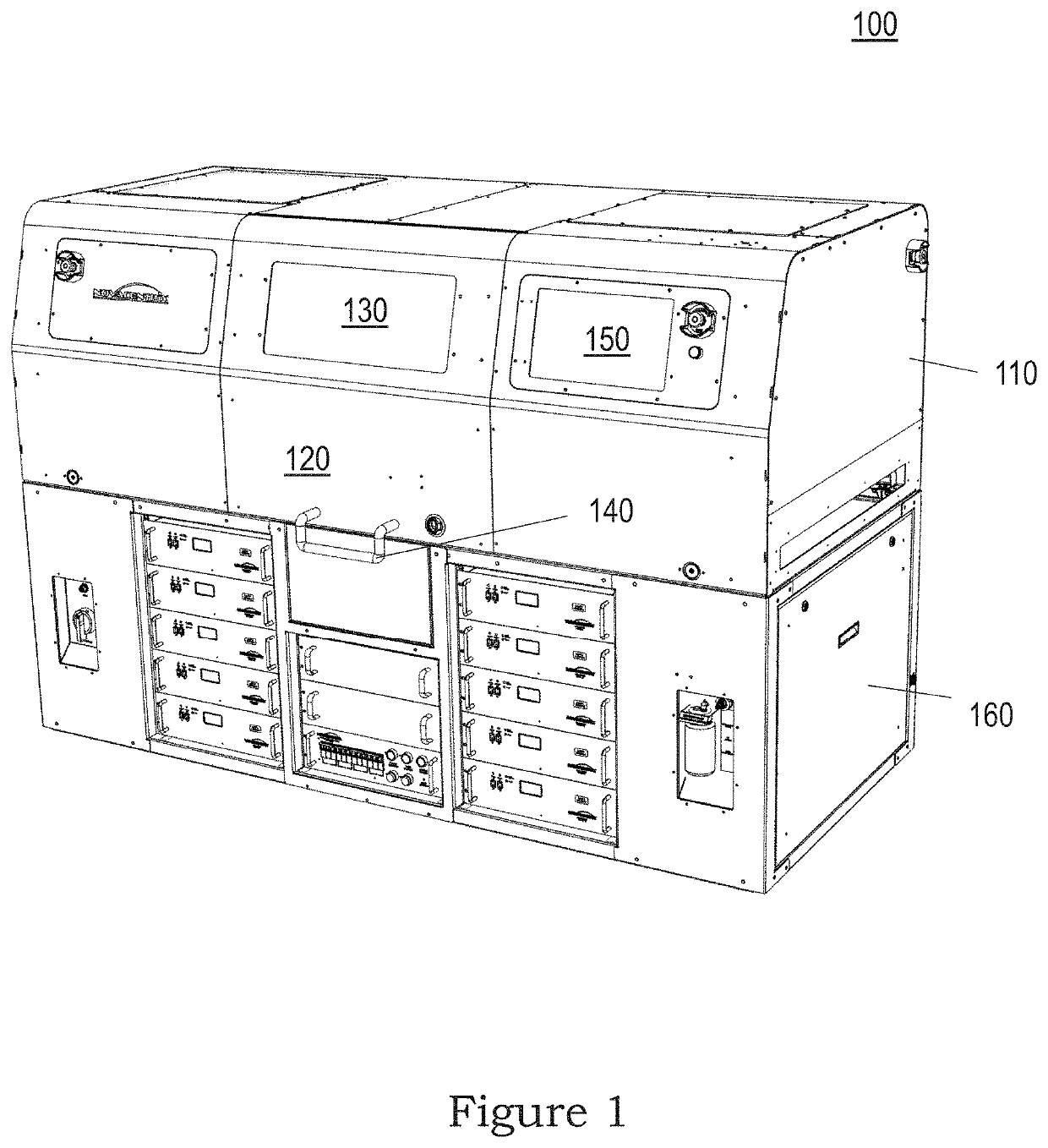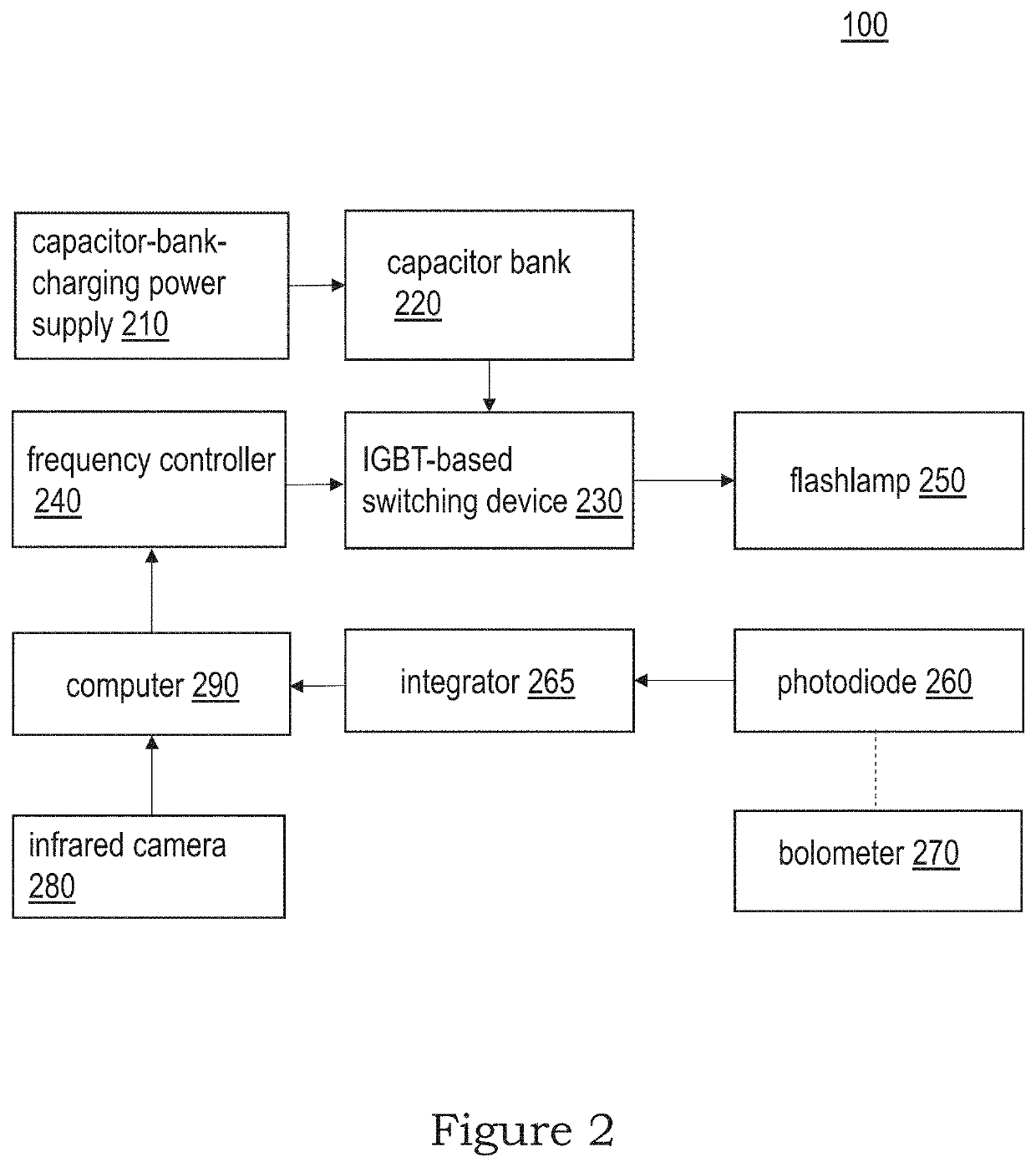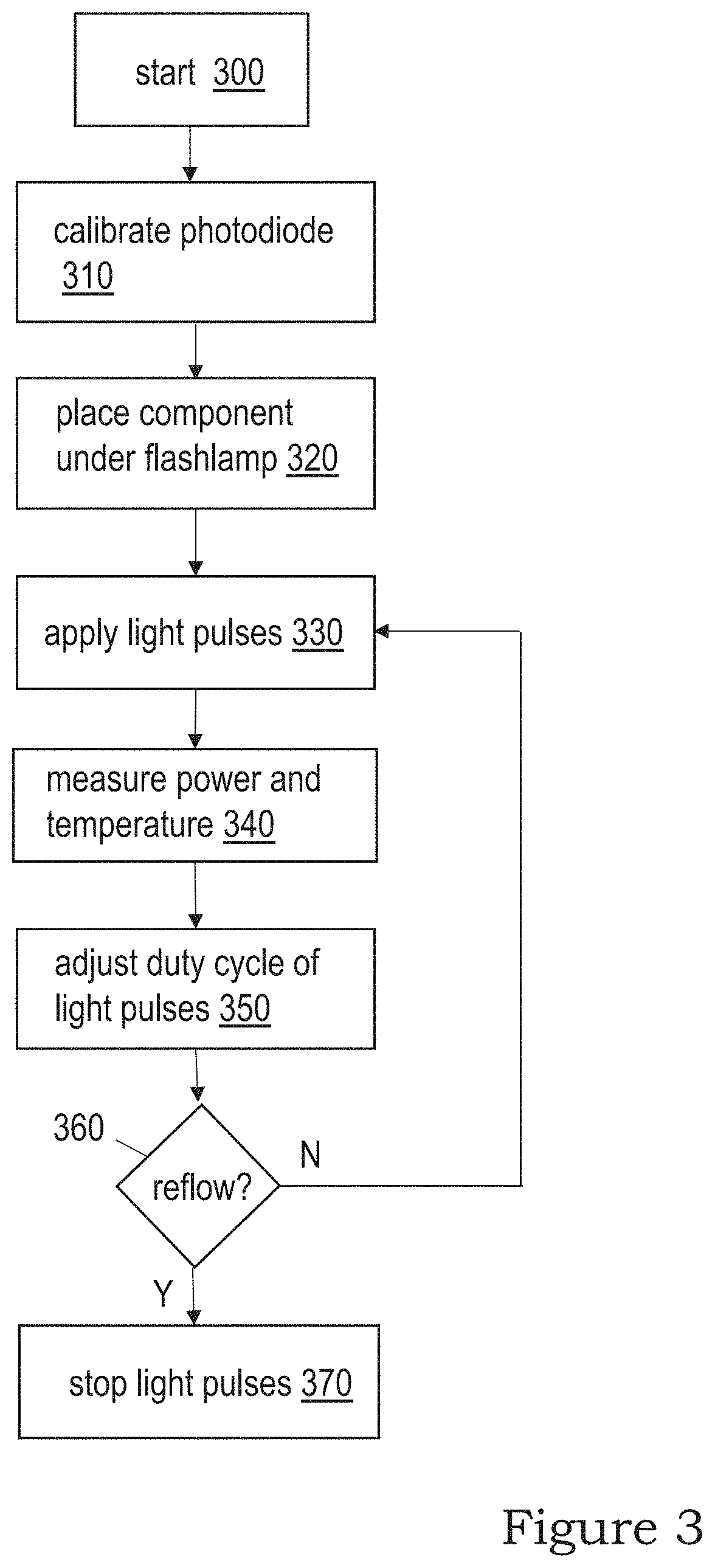Method for connecting surface-mount electronic components to a circuit board
a technology of electronic components and circuit boards, applied in the field of manufacturing methods, can solve the problems of long time needed, limited reflow process, poor thermal and mechanical performance of solder pastes,
- Summary
- Abstract
- Description
- Claims
- Application Information
AI Technical Summary
Benefits of technology
Problems solved by technology
Method used
Image
Examples
Embodiment Construction
[0017]Referring now to the drawings and in particular to FIG. 1, there is depicted an isometric view of a system for thermally processing solder paste to connect electronic components to a circuit board, according to one embodiment. As shown, a system 100 includes an enclosure 110 resting on an equipment rack 160. Enclosure 110 includes a hatch door 120 that can be lifted open via a handle 140. A semi-transparent window 130 is provided in hatch door 120 to allow a user to observe any processing occurring within enclosure 110. At least one flashlamp (not shown) is positioned within enclosure 110 to enable thermal processing. Users can enter and receive information into and from system 100 via a touch-screen 150.
[0018]Enclosure 110 may include an environmentally controlled chamber (not shown) that can be filled with an inert gas, e.g., nitrogen, or a reactive gas, e.g., formic acid, or vacuum, in which thermal processing can be performed on electronic components. In addition, enclosur...
PUM
| Property | Measurement | Unit |
|---|---|---|
| temperature | aaaaa | aaaaa |
| thickness | aaaaa | aaaaa |
| temperature | aaaaa | aaaaa |
Abstract
Description
Claims
Application Information
 Login to View More
Login to View More - R&D
- Intellectual Property
- Life Sciences
- Materials
- Tech Scout
- Unparalleled Data Quality
- Higher Quality Content
- 60% Fewer Hallucinations
Browse by: Latest US Patents, China's latest patents, Technical Efficacy Thesaurus, Application Domain, Technology Topic, Popular Technical Reports.
© 2025 PatSnap. All rights reserved.Legal|Privacy policy|Modern Slavery Act Transparency Statement|Sitemap|About US| Contact US: help@patsnap.com



